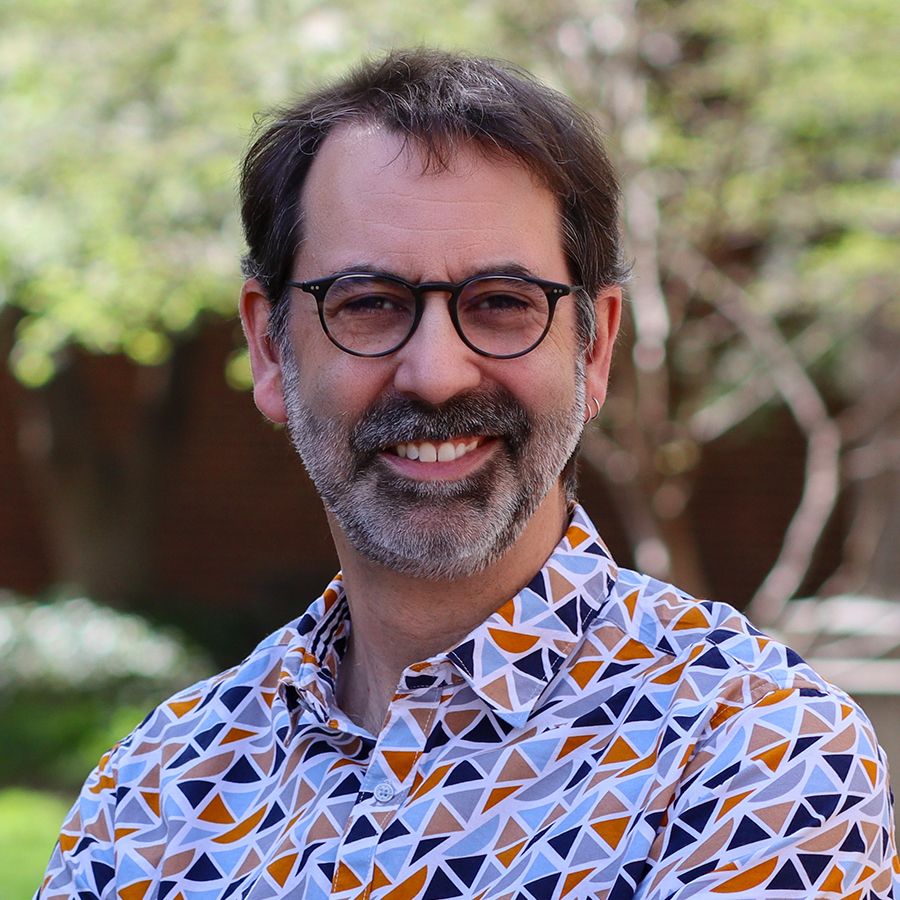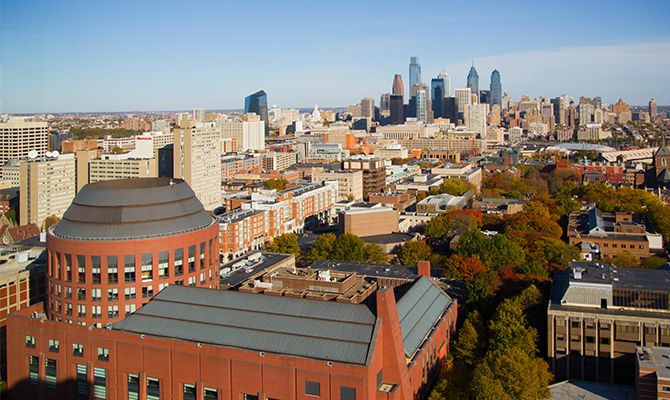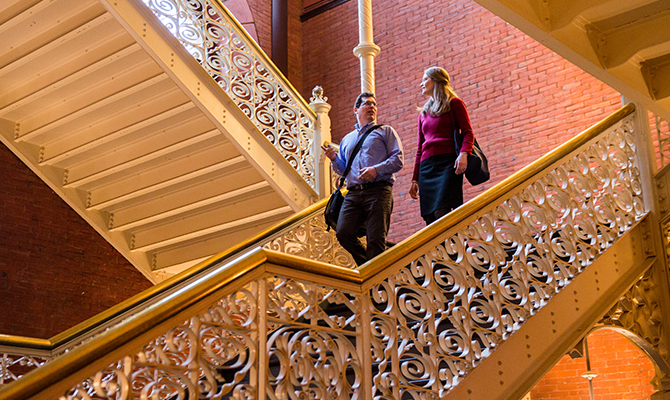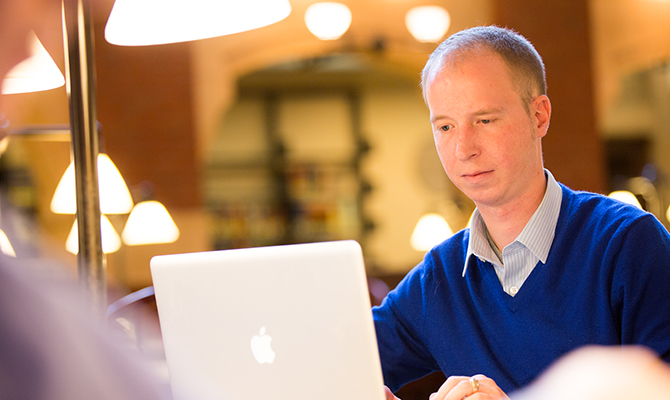
Professor of Earth and Environmental Science and Faculty Director of the University Scholars Program, University of Pennsylvania
Master of Philosophy in Liberal Arts, University of Pennsylvania ‘24
Doctor of Philosophy in Soil Science, University of Alberta ‘01
Master of Science in Soil Science, University of Guelph ‘96
Bachelor of Science in Environmental Engineering, University of Guelph ‘94
As Professor in the Earth and Environmental Sciences Department at Penn, Alain Plante spends much of his time in Hayden Hall—a red brick and terracotta building named for Ferdinand Hayden, a 19th-century geologist who was instrumental in establishing Yellowstone National Park. When Alain was invited to lead an alumni trip to Yellowstone, he says, “I really went down the rabbit hole. I started reading multiple biographies and getting very interested in the history of science.” The trip was cancelled due to the COVID-19 pandemic, but Alain’s curiosity remained; “Instead of a puppy, I got a master’s degree!” he jokes. The Master of Philosophy in Liberal Arts (MPhil) at the University of Pennsylvania helped him to formalize and stay focused on his research, while opening up opportunities to study science from the perspective of the humanities.
As a full-time professor and undergraduate chair in the Department of Earth and Environmental Science, Alain took one course at a time—first checking in with his course instructors to ensure that his attendance wouldn’t be disruptive. “Everybody’s been super gracious, and very enthusiastic about the project that I have undertaken,” he notes. The biggest learning curve in returning to the classroom, he says, was updating his academic skill set to tackle assignments in reading- and writing-intensive courses. “What really motivated me was not just the knowledge but the practice: How do historians do the work of environmental history?” he reflects. “Coming from science to the humanities has given me access to a completely different mode of operation than I’m used to.”
Gaining appreciation for the methods and practices of other disciplines is important for his academic role, Alain adds. As undergraduate chair in the Department of Earth and Environmental Science, Alain is responsible for the environmental studies program. “Environmental studies is not just science; it includes social sciences and the humanities,” he explains. “I appreciated and valued that, but now I have a better understanding of the humanities as a practice and as a voice in the conversation.” For example, he co-teaches a course about the Anthropocene epoch—our contemporary period of geological history—which necessarily entails historical and anthropological perspectives as well as science. “Our environmental problems are not problems of chemistry or physics or biology. We know how to solve those things, but we have tremendous friction from political systems, economic systems, and even our own inherited relationships with the environment,” says Alain. “Climate change relates to how we use fossil fuel as an energy resource, but we have other resources that we use in unsustainable ways because of our social, economic, and political structures.”
As Alain progressed in the program, he took courses in world philosophy and indigenous science as well as independent study on environmental ethics. “I think it’s important for scientists to understand what kind of questions they’re asking, how those questions get answered, and what are the implicit biases that go into the work we do,” explains Alain, who first encountered the philosophy of science while pursuing his PhD in soil science, and now walks all of his own students through the basics. Taking graduate-level philosophy courses as an MPhil student gave him opportunities to reflect on his own academic practice—and opened up a new line of questioning for his upcoming MPhil thesis. “What is our relationship to the environment, as humans? Where did we inherit that from? Other societies have different relationships with the environment; what other ways of knowing exist in the world? What new relationships can we build?” he asks.
“This all started out of a personal curiosity, but I’ve benefited a lot from the flexibility in being able to formulate my curriculum,” Alain concludes. “That says a lot about Penn—the faculty we have here, and the kinds of work they do. The MPhil was a place where I could explore and draw together a lot of things from a lot of different places.” And whether or not the proposed tour in Yellowstone will be rescheduled, the intellectual rabbit hole it led to has made a lasting impression. “Certainly, the way I communicate my research is evolving,” he says.






